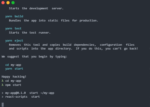Mark Zuckerberg says that paying US$19 billion for WhatsApp was a bargain.
Indeed, according to CNN and other news sources, the Facebook CEO said that the mobile messaging company was “worth more than $19 billion.”
Subscribers to the WhatsApp service can bypass telcos and send text messages to other subscribers for free, using either WiFi or cellular data on their smartphones and tablets.
Like Facebook, Twitter, Tumblr and YouTube, WhatsApp has amassed a huge customer base, about 200 million people. That’s why WhatsApp is valued in a comparable way to Facebook and Twitter themselves.
As a texting company, WhatsApp represents a huge threat to telecommunications carriers who make huge profit on SMS-based text messages, which are essentially free services that consume almost zero bandwidth.
Huge installed base. Customers gain by using its free service. The more people who use the free service, the better that service gets. And it pokes a sharp stick in the eye of telcos. What’s not to like?
Of course, $19 billion is a lot of money. According to Business Insider, this is the second-biggest tech purchase ever, adjusted for inflation, second only to Hewlett-Packard’s purchase of Compaq in 2001 for $25 billion, which would be $33.4 billion in 2014 dollars.
By comparison, Sun Microsystems’ $1 billion acquisition of MySQL in 2008 seems like chump change. Heck, Sun itself was purchased by Oracle for only $5.6 billion in 2009. Pocket money.
What we can learn is that social media companies—with a huge customer base, advertising-based revenue model, and lock-in caused by the network effect—are where you’ll find the big bucks. Forget hardware, software and services. It’s all about social media.
Change that to mostly about social media. Traditional software companies still cash out, although not to the tune of $19 billion. According to a report from Berkery Noyes, an investment bank, there were 1,598 mergers and acquisitions in the software industry in 2013, worth an aggregate $88.22 billion. Companies sold, on average, for 2.4x their previous year’s revenue.
To quote from the report’s key highlights:
Five of the top ten highest value deals occurred in the Niche Software segment, which consists of software designed for use in specific industry markets. Four of these five transactions were located in the finance vertical.
The most active acquirers in the Infrastructure Software segment during 2013 were EMC Corporation and Intel Corporation with six transactions each.
There were 255 financially sponsored transactions with an aggregate value of $29.05 billion, representing 16 percent of the total volume and 32 percent of the total value, respectively.
The biggest software purchase over the past few years—until the WhatsApp deal, of course—was HP’s purchase of Autonomy for $10.28 billion in 2011. That didn’t work out very well. HP wrote off $8.8 billion of that acquisition’s value only a year later.
Let’s hope that Zuckerberg’s WhatsApp purchase has a happier ending.
Do you use WhatsApp? What do you think of the service? Write me at alan@camdenassociates.com.
Alan Zeichick, founding editor of SD Times, is principal analyst of Camden Associates.




